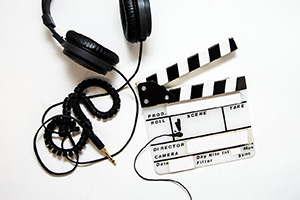Freddy Syborn on Bad Education
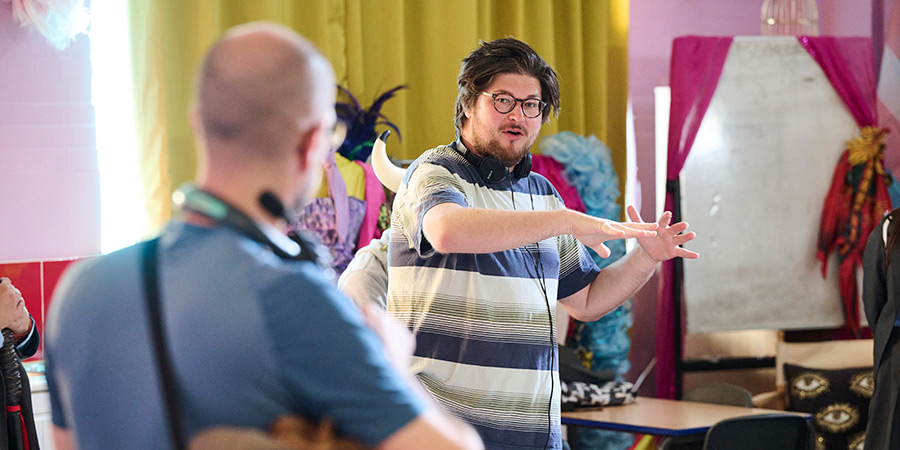
Ahead of the Bad Education musical special on Wednesday, we chatted to co-creator, co-writer and director Freddy Syborn.
After the 2014 series, it appeared to be the end for Bad Education. At that point did you still harbour plans to bring it back one day, or was that a more recent thought?
We decided to reboot it during Covid. The BBC had asked about a reunion, which we didn't know what to do with, because we felt we'd said goodbye to the characters twice, including the movie.
But Jack and I always loved working with Charlie and Layton, who have such a funny, unforced rapport. They're a brilliant double act.
We were keen to take the format of the show and be bold with it. We wanted to call it Badder Education to mark it out as a different beast but sadly that would have played havoc with iPlayer. Jack also wanted to produce and I wanted to direct, so that made it feel like a fresh challenge. And I'd spent lockdown writing a gory murder mystery, Ragdoll, for AMC, so I was desperate to do something joyful for a change.
Talk us through the process of rebooting the show with Mitchell and Stephen as the key characters. How much planning had to go into getting the new setup right?
Well, Jack and I wrote the reunion to set up the new double act. We thought it was fun for Stephen to be teaching already, but ashamed of the fact because it didn't fit with his ambitions. By the end of the reunion, Alfie sacrifices his own job so Mitchell can get one at Abbey Grove.
We knew we had to give Layton and Charlie the right material to make their double act sing. In the original show, we built so much around Jack as a performer and his ability to deliver his kind of material. So we brought Layton and Charlie into the writing process early.
In the fourth series, Layton co-wrote an episode and Charlie was in the room. In the fifth series, Charlie co-wrote an episode with me, and Layton co-wrote another one. During this time, the other writers could get used to their voices, too.
On set, they're such great performers, and such great professionals, too. Every day working with them has been a total pleasure.
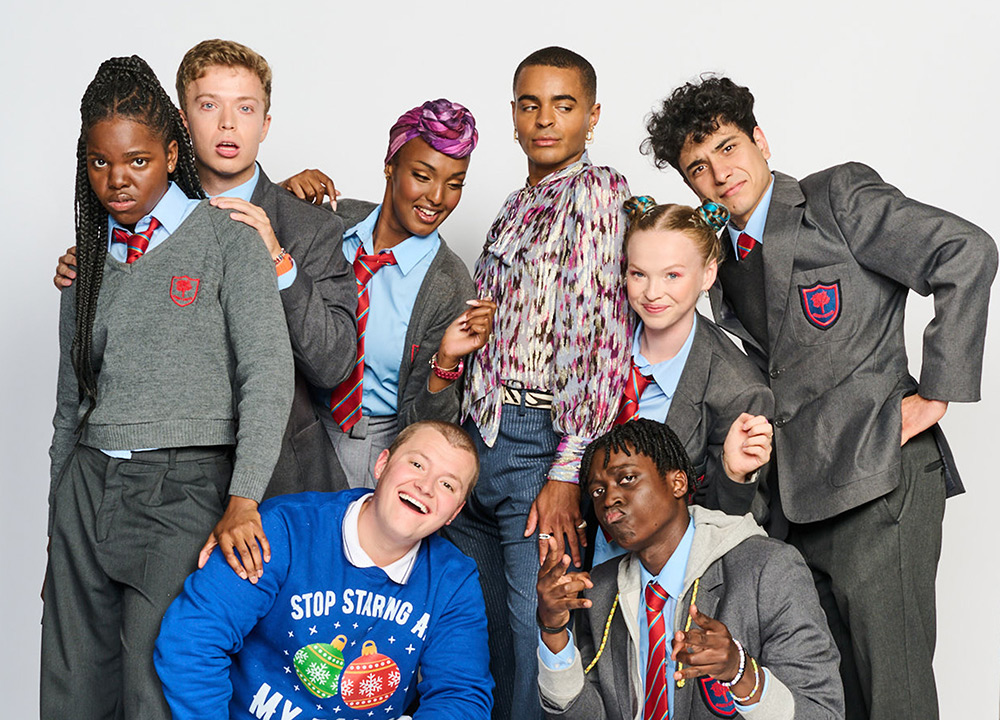
How did you decide which characters would appear around the two leads?
Jack and I wrote the reunion then got some younger, fresher writers into a room for a week to brainstorm a series off the back of it. We knew we didn't want to write every episode because we're old men now. At 36, I may as well be dead!
That process brought us together with Nathan Bryon, Laura Smyth and Rhys Taylor who've remained integral to the project. In this new series, they're joined by Ava Pickett and Anna Costello.
Having written three series ourselves, and with Dan Swimer, this was an exciting new way of approaching the show. In terms of the new Class K, the room fleshed out the characters based on initial ideas of ours. It was a group effort.
What was the thinking, in terms of plotting and the character dynamics, of 'demoting' Fraser, and bringing in Hoburn as a new headteacher instead?
Firstly, I think Mat likes a new challenge, just like we do. Secondly, it was part of a concerted effort to genuinely change up the dynamic of the show, so we retain the character but change his situation. Plus it gave us the opportunity for a new headmistress, Hoburn, played by the iconic Vicki Pepperdine. Also, Fraser as a dinner lady loathed by his two goons, Pavel and Edna... we just found it funny!
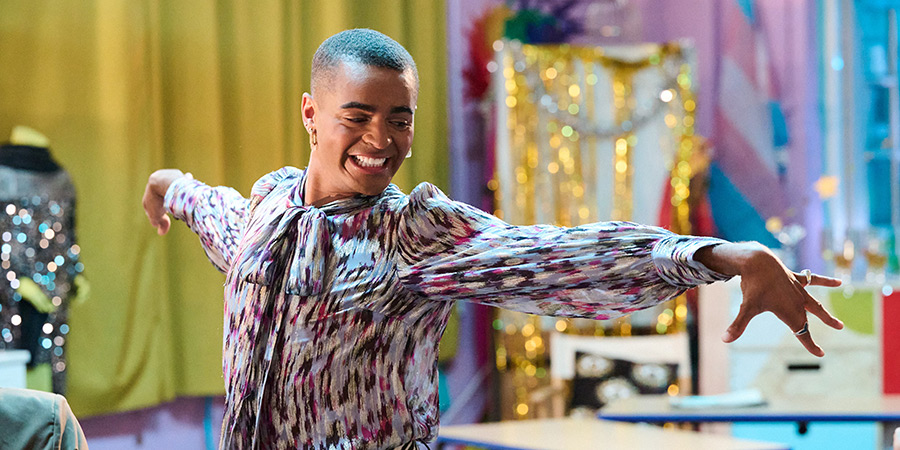
Please talk us through in-depth scripting an episode. What is the drafting process? How many drafts do you do? Who else is involved? How long does it take from start to finish?
In depth? OK!
This year, we did a two week room with our writing team and two great new stand-ups, Kyrah Gray and Fathiya Saleh.
Over those two weeks, I wrote everything down and typed up story outlines in bullet points, then sent them off to the writers. We went back and forth fleshing out the stories, then sent them off to the BBC. Once the BBC were happy, each writer went to script. I turned into a script editor basically, reading material, pitching in ideas and so on. Jack would read as executive producer, and of course he'd also pitch lots of material.
We all then got back together and read our scripts in the room with the writers playing different parts. To me, this is crucial - and fun. Vicki came in and read Hoburn, so she could pitch ideas in, too. It goes without saying that she's incredible.
Then we did a round of drafts based on the first read and some BBC notes. Then I did a pass on all of the episodes, bringing the scripts together tonally, smoothing over the inevitable bumps when you've got so many voices - and starting to think from a production perspective.
Then we did a full cast read with all the bells and whistles, after which I did a quick pass to produce shooting scripts, feeding in notes, plus any ideas that the writers had from the read.
And THEN we rehearsed for a week and the scripts changed all over again!
Having seen the new members of cast acting out the characters on screen across Series 4, did that influence anything you wrote for Series 5? It's presumably easier to write for a character once you've seen an actor inhabiting the role?
Definitely. For instance, over the course of Series 4, we realised that our new Class K loved singing and dancing. Even Anthony, who said he couldn't sing and then turned out to have the voice of an angel. That informed our decision to do a musical Christmas special.
Then on a character level, you get a sense of what the actors enjoy, feel comfortable with etc, and that helps to inform the writing the second time around. I also rehearse with the actors for a week before shooting, and I use that time to hone the scripts and work on more jokes in the room with them.
I love to keep the creative process really open throughout, then amalgamate the best stuff in my final pass over the scripts.
What do you think is the biggest challenge in terms of scripting the show?
It's more of an ensemble show now than ever. That means that everyone needs something to do - which becomes a challenge to shoot on our schedule!
The change from Jack to Layton and Charlie's double act changes the chemistry and tone of the show, too. We've relished the silliness and the joy. And I've tried to bring something new to the show myself as director.
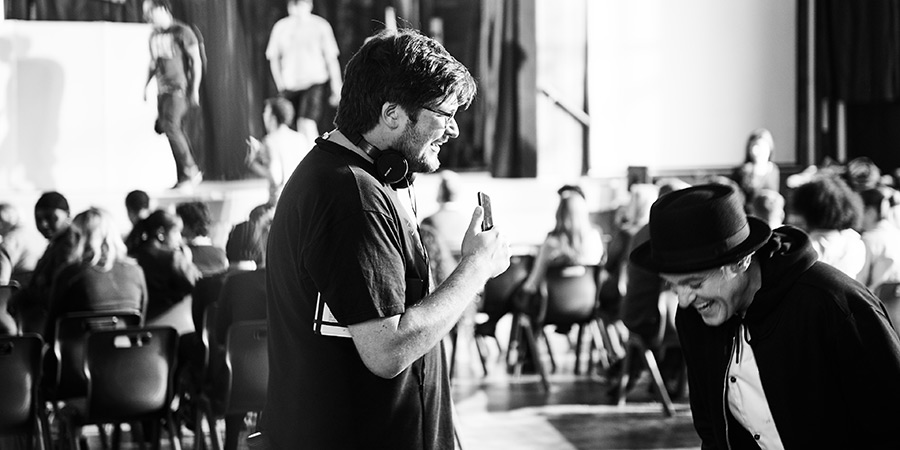
You became the director on the show for Series 4. Have you always harboured an ambition to direct the programme?
I've certainly always wanted to direct and have spent a long time trying to write my way into the role, if you see what I mean! I find I think visually and I love working with actors. I love the freedom this particular show gives to a director, too. We play with genre, film references and pastiche.
It's also a chance to develop a strong visual aesthetic, combining the grit and glamour of (say) Stephen's classroom. The films of Sean Baker and Jacques Demy were a big inspiration for me.
How have you built up your directing skills? Is there anything you're still learning or needing to learn?
I still know nothing, so there's everything still to learn. I've learnt, I hope, to be a better collaborator, and the importance of empowering other creatives to take ideas and run with them.
You've studied humour in-depth, as demonstrated by A Good Bullet, your book about 'comedy, violence and all the terrible things that make us laugh'. What do you think is one of the key takeaways from that book?
I haven't thought about that book for a while! Some of the ideas in there will have aged badly. For instance, in 2013, I was very impressed by Louis CK.
For me, the thesis remains true: comedy can feel violent because it has a corrective mechanism. It's about misunderstandings - person A thinks the world is like this, person B thinks the world is like that. One of them is wrong, and we laugh at them. Maybe that sounds bleak, but the misunderstanding can be very gentle. But I think this corrective energy is the reason we end up with comics hectoring their audience, as I hectored the 7 people who bought my book.
More than anything, the book reminds me to endeavour to act in good faith. I hope I wrote it in good faith, so there's only so much I can feel embarrassed by it, even with all the Louis CK stuff in there.
Any other advice for up-and-coming sitcom writers?
Only Billy Wilder was perfect, ironically, so don't sweat it. Also work with actors as much as you can. Collaborate!
This article is provided for free as part of BCG Pro.
Subscribe now for exclusive features, insight, learning materials, opportunities and other services for comedy creators.


